Can Dogs Eat Chives? 5 Shocking Facts About Chives
When it comes to feeding our furry friends, it’s crucial to know what is safe and what isn’t. One question that often arises among dog owners is, “Can dogs eat chives?” Chives, a member of the Allium family, which also includes onions, garlic, and leeks, are commonly used in various culinary dishes for their distinct flavor. However, while they might be a tasty addition to our meals, they can pose a significant risk to dogs.
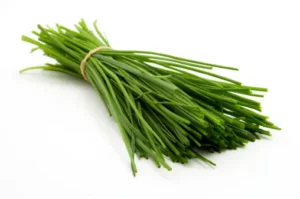
Why Are Chives Dangerous for Dogs?
Chives contain compounds known as thiosulfates, which can be toxic to dogs. When a dog ingests chives, these compounds can damage their red blood cells, leading to a condition called hemolytic anemia. This condition impairs the blood’s ability to carry oxygen, which can be life-threatening if not addressed promptly.
Symptoms of Chive Poisoning
If a dog consumes chives, symptoms of poisoning may not appear immediately. It can take several hours to a few days for signs to manifest. Common symptoms include:
- Vomiting
- Diarrhea
- Lethargy
- Pale gums
- Rapid breathing or panting
- Elevated heart rate
- Weakness or collapse
What do chives do to dogs?
Effects of Chives on Dogs
Chives, like other members of the Allium family (which includes onions, garlic, and leeks), contain compounds that are toxic to dogs. When ingested, chives can cause a range of harmful effects due to their ability to damage a dog’s red blood cells. Here’s a detailed look at what chives do to dogs:
- Hemolytic Anemia
- Red Blood Cell Damage: Chives contain thiosulfates, which can damage red blood cells in dogs. This leads to hemolytic anemia, a condition where red blood cells are destroyed faster than the body can replace them.
- Symptoms of Anemia: Common signs of hemolytic anemia in dogs include lethargy, weakness, rapid breathing, pale gums, and a rapid heart rate. In severe cases, anemia can cause collapse or even be life-threatening.
- Gastrointestinal Upset
- Vomiting and Diarrhea: Ingesting chives can irritate the gastrointestinal tract, leading to vomiting and diarrhea. These symptoms can contribute to dehydration and further weaken the dog.
- Heinz Body Formation
- Heinz Bodies: The toxic compounds in chives cause oxidative damage to the hemoglobin within red blood cells, leading to the formation of Heinz bodies. Heinz bodies are abnormal clumps of hemoglobin that can be seen under a microscope and are indicative of oxidative damage.
- Reduced Oxygen Carrying Capacity: Heinz bodies impair the red blood cells’ ability to carry oxygen efficiently, exacerbating the symptoms of anemia.
- Methemoglobinemia
- Altered Hemoglobin: In some cases, the toxins in chives can cause methemoglobinemia, a condition where hemoglobin is altered so it cannot effectively release oxygen to body tissues. This can result in cyanosis (a bluish tint to the gums and skin) and respiratory distress.
- Potential Organ Damage
- Kidney and Liver Stress: The breakdown of red blood cells and the resulting release of hemoglobin can put stress on the dog’s kidneys and liver, potentially leading to further complications.
Long-Term Effects
- Chronic Anemia: Repeated exposure to small amounts of chives over time can lead to chronic anemia, with ongoing weakness, fatigue, and poor health.
- Organ Damage: Prolonged hemolytic anemia can cause lasting damage to organs due to the lack of adequate oxygen supply.

Diagnosis of Chive Poisoning in Dogs: Can Dogs Eat Chives
There is no specific laboratory test for chive toxicity, so an accurate history from you is crucial for a veterinary surgeon. This history should include details about what your dog has eaten (such as chive leaves or the bulb), an estimate of the quantity consumed, and the time since ingestion. The veterinary surgeon will then perform a thorough clinical examination, paying particular attention to signs of anemia, such as pale gums or a rapid heart rate.
Blood tests are the next step to confirm the diagnosis or to diagnose a dog with an uncertain history. The vet will likely check blood biochemistry to assess organ function and hematology to evaluate red and white blood cells. Hematology is especially important in cases of chive poisoning because the primary clinical sign is anemia. The anemia associated with chive toxicity is known as Heinz body anemia, characterized by distinctive “Heinz bodies” visible in red blood cells under a microscope. While there are other causes of Heinz’s body anemia, poisoning by chives and other members of the Allium family is the most common.
More advice on…
Can Dogs Eat Pretzels?
Can Dogs Eat Basil?
Treatment for Chive Poisoning in Dogs
If your dog has ingested chives, immediate veterinary care is crucial. The treatment approach will depend on the severity of the symptoms and the amount of chives consumed. Here’s an overview of the typical treatment steps for chive poisoning in dogs:
- Inducing Vomiting
- If the ingestion was recent (within a few hours), the veterinarian might induce vomiting to remove any remaining chives from the stomach. This is usually done using a safe and controlled method.
- Activated Charcoal
- After inducing vomiting, the veterinarian may administer activated charcoal. Activated charcoal helps absorb any remaining toxins in the gastrointestinal tract, preventing further absorption into the bloodstream.
- IV Fluids
- Intravenous (IV) fluids are often given to maintain hydration and support kidney function. IV fluids can also help flush toxins from the system more quickly.
- Blood Transfusions
- In severe cases of hemolytic anemia, a blood transfusion may be necessary. This helps replace the damaged red blood cells and improves the oxygen-carrying capacity of the blood.
- Oxygen Therapy
- If the dog is showing signs of severe anemia or respiratory distress, oxygen therapy may be provided to help ensure the dog is receiving enough oxygen.
- Medications
- Antioxidants and other supportive medications may be prescribed to help protect the red blood cells and reduce oxidative damage.
- Pain relief and anti-nausea medications might also be administered to keep the dog comfortable.
- Monitoring and Supportive Care
- The dog will be closely monitored for any changes in condition. This includes regular checks of vital signs, red blood cell counts, and overall clinical status.
- Supportive care, including rest and a quiet environment, will be provided to help the dog recover.

Aftercare and Prevention
- Follow-Up Visits: Follow-up visits to the veterinarian will be necessary to monitor the dog’s recovery and ensure there are no long-term effects from the poisoning.
- Dietary Precautions: To prevent future incidents, be cautious about what your dog has access to. Keep chives and other members of the Allium family (such as onions and garlic) out of reach, and avoid feeding your dog any human foods that may contain these ingredients.
When Should I See a Vet for Chive Poisoning? Can Dogs Eat Chives
If you suspect your dog has ingested chives, contact your veterinarian immediately, even if no symptoms are present yet. Early intervention can prevent serious complications. Watch for early signs of poisoning such as vomiting, diarrhea, and lethargy. If these symptoms occur, or if your dog shows signs of anemia like pale gums or rapid breathing, seek veterinary care without delay.
In more severe cases, if your dog collapses, has difficulty breathing, or exhibits extreme weakness, it is crucial to get to a vet as soon as possible. Persistent or worsening symptoms also warrant immediate veterinary attention. Always err on the side of caution and consult your vet to ensure your dog’s health and safety.
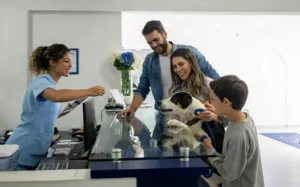
What to Do Before Seeing the Vet
- Do Not Induce Vomiting: Unless specifically instructed by a veterinarian, do not try to induce vomiting at home, as it could cause further harm.
- Keep Your Dog Calm: Try to keep your dog calm and comfortable while you prepare to go to the vet.
- Gather Information: Be ready to provide the vet with information about what your dog has eaten, how much, and when it happened.
Prevention: Can dogs eat chives?
Avoid Allium Foods: The best way to protect your dog from the harmful effects of chives is to avoid feeding them any foods that contain chives or other Allium family members. Be cautious with table scraps and foods seasoned with these ingredients.
Educate Household Members: Make sure everyone in your household knows the risks and keep harmful foods away from your dog.
Final Thoughts: Can dogs eat chives?
So, can dogs eat chives? The answer is a resounding no. Chives and other members of the Allium family can be highly toxic to dogs, potentially causing severe health issues. Always be mindful of what you are feeding your dog and stick to safe, nutritious options. If you ever have any doubts about what is safe for your pet, consult your veterinarian for advice. Ensuring your dog’s diet is free from harmful foods like chives is a vital part of responsible pet ownership.
FAQS: Can Dogs Eat Chives?
What happens when my dog eats chives?
When a dog eats chives, it can suffer from gastrointestinal upset and hemolytic anemia, which damages red blood cells and can lead to symptoms like vomiting, diarrhea, lethargy, and pale gums.
What do chives do for dogs?
Chives are toxic to dogs and can cause red blood cell damage, leading to anemia and other serious health issues.
Can dogs eat chives UK?
No, dogs should not eat chives in the UK or anywhere else, as they are harmful and can cause serious health problems.
Will a small amount of onions hurt my dog?
Yes, even a small amount of onions can be harmful to dogs, causing gastrointestinal upset and potentially leading to hemolytic anemia, similar to chives.

Jahanzaib Kaleem is a passionate and knowledgeable pet writer and veterinarian dedicated to enhancing the well-being of pets and educating pet owners around the world. With years of experience in veterinary medicine and a deep love for animals, Jahanzaib combines his medical expertise with a flair for writing to deliver insightful and practical advice on pet care.

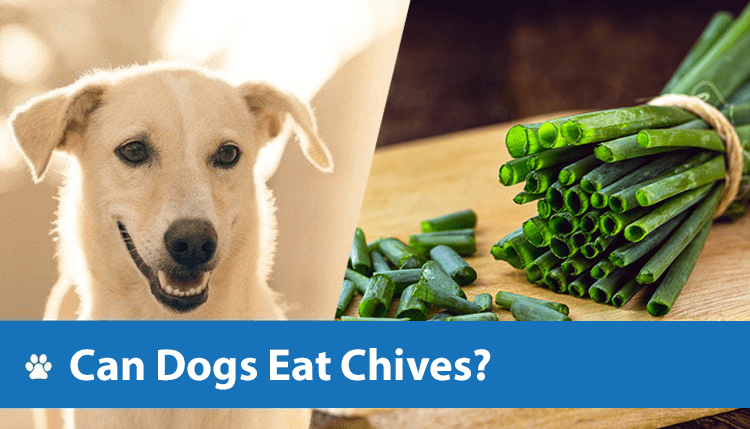
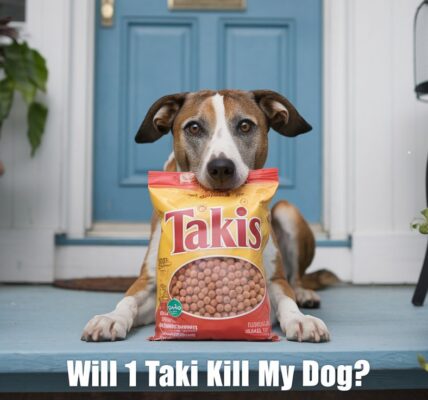


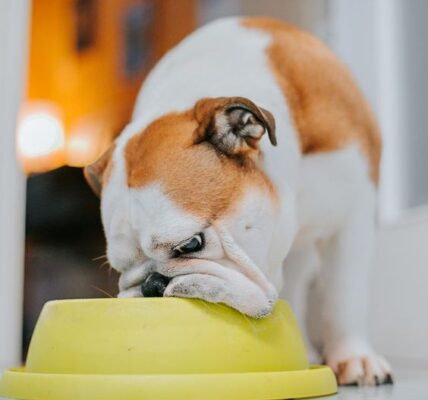
2 COMMENTS